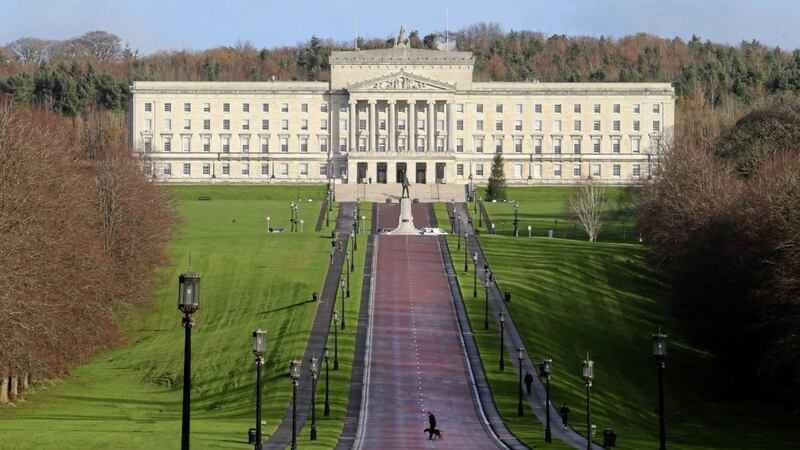The intention of the British and Irish governments to breathe post-Christmas life into the ghost of Stormont past represents another triumph of hope over experience.
Oh dear, you say, what an un-festive view of our political process at a time when we should look forward with optimism to, what was it - oh yes, a bright brand new day.
Some observers (mainly on the other side of the recently discovered border) see the problem as inflexibility by two intractable sides. If both gave an inch, the argument goes, they could come together in peace and harmony and shower us all with unimaginable prosperity.
While that has sometimes been the situation in the past 20 years (apart from the prosperity) things are no longer that simple. There are now three additional complications, in growing order of importance.
Firstly, although the gap between Sinn Féin and the DUP is largely contrived for their supporters, it will take a more convivial political atmosphere for them to put things back together again. In the deepening divisions between Dublin and London, it is hard to foresee much conviviality any time soon.
The second problem is that the conflicting attitudes between SF and the DUP during the forthcoming Brexit negotiations would render Stormont largely unworkable. Unless something changes, a post-Brexit Stormont increasingly appears the most feasible solution.
The third factor is by far the most important. It concerns Sinn Féin's long-term political strategy. It is based on the belief that, while absenting itself from Stormont, the party's potential membership of the next Dublin government might allow it an input, however symbolic, into the north's governance.
It is a long shot, but if it works, Sinn Féin would be "governing" the north from Dublin, rather than from Belfast. (Now, wouldn't that be a good platform for Gerry Adams to run for the Irish presidency, if Michael D Higgins retires?)
The prospect of Dublin having an input into the north's governance has been raised by Simon Coveney's suggestion that in the absence of an executive, "intergovernmental conferences" could be "triggered" to make decisions on the north.
It is not clear just how feasible that is, but in the current cold war over Brexit, the Dublin government could certainly push for what might be called a hard nationalist interpretation of the Good Friday Agreement.
The DUP opposes the idea. In a carefully reasoned response, Sammy Wilson, raised the debate to a new intellectual level by suggesting that Mr Coveney opens his mouth without engaging his brain. (It is that level of philosophical sophistication which has brought the DUP to where it is today.)
If SF were to return to Stormont tomorrow, it would be ridiculed in Dublin for its northern performance in an austerity-led executive. The suggestion that the southern electorate do not care about northern politics misses the point.
A poor northern performance damages SF in the Dáil and therefore in the southern media. The electorate may not be interested in the north, but poor publicity for Sinn Féin might hinder its chance of stumbling into coalition at a time when the two major parties appear internally divided over abortion.
Of course, there is immense pressure on SF and the DUP to return to Stormont. This week's gloomy forecast on government spending from the Department of Finance is another of the secretary of state's warnings that if Stormont does not return soon we are all doomed.
The argument that the figures would somehow appear better if we had 90 MLAs poring over them is hardly convincing. (The accounts might look less embarrassing if we stopped paying MLAs for doing nothing. Although, in fairness, they do it with a degree of skill and style not normally evident in western democracies.)
The ghost of Stormont past shows us that we are no worse off without the sort of devolved government we had. It lacked any convincing social or economic policy. Indeed its only economic strategy appeared to be lowering corporation tax, much in the style of what Donald Trump did this week (He only reduced it to 21 per cent. Sinn Féin and the DUP wanted ours lowered to 12.5 per cent.)
Since there is no public clamour for Stormont to return, we appear destined to live with direct rule until Brexit has been put to bed. That may take a while, so in the meantime, why not do what we always do here and have a row about the border?
That will put Stormont on the long finger and in the meantime, MLAs will continue to receive their salaries. Who says there is no Santa Claus?









